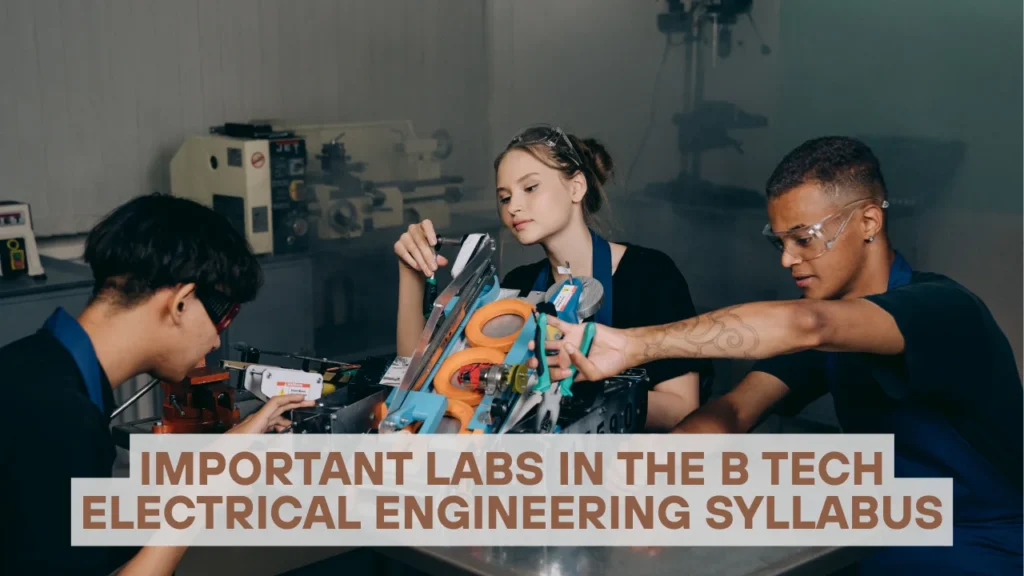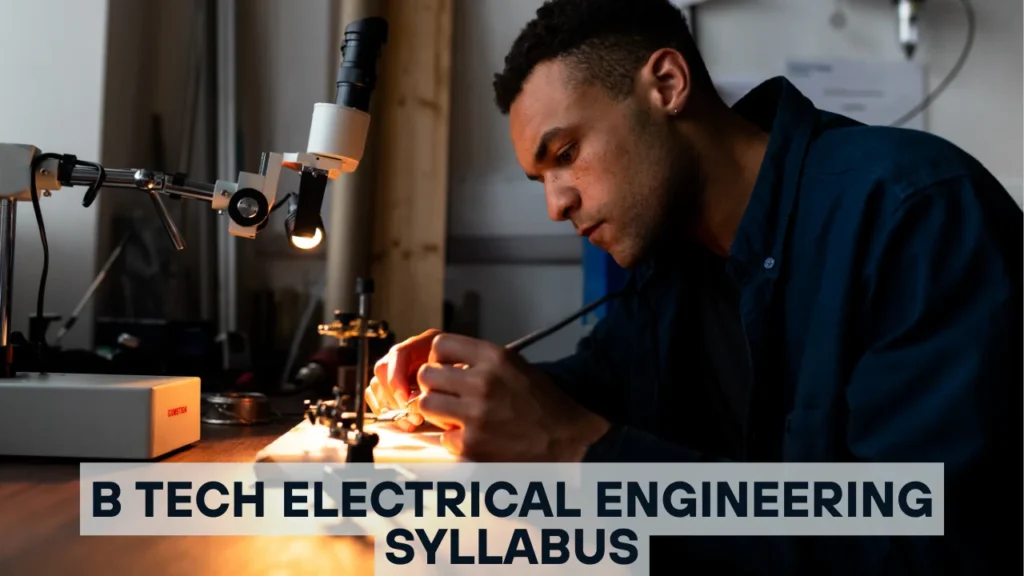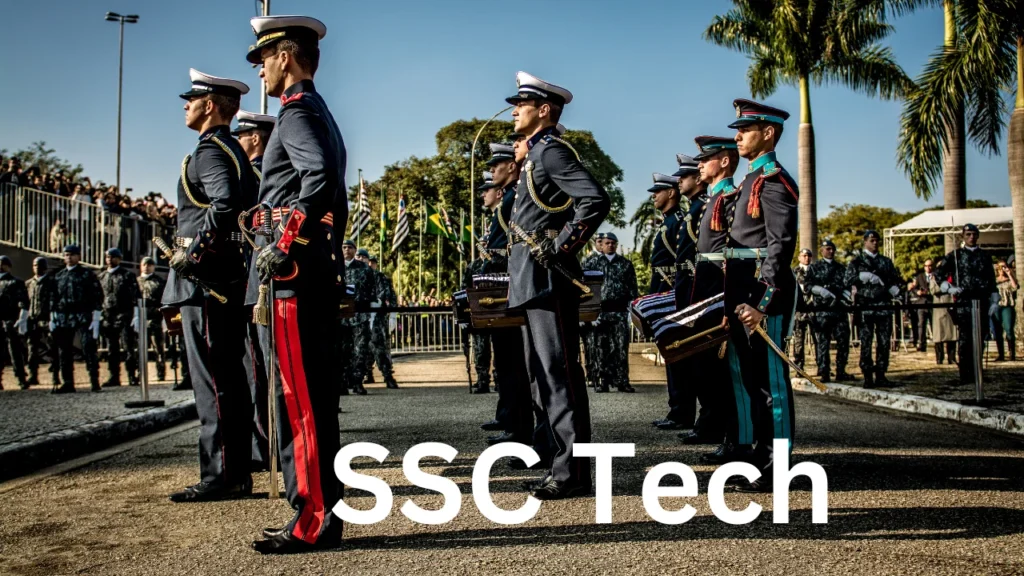If you’re thinking about studying engineering, then understanding the B Tech Electrical Engineering syllabus is a great place to start. This syllabus forms the core of what students will study in their four-year undergraduate program. It covers everything from the basics of circuits to the advanced systems that run our modern world.
In this blog, we will take you through each part of the syllabus semester by semester. You’ll also learn about the labs, elective options, and what kind of jobs this degree prepares you for. Let’s get started.
Read More About Tech and Health at Aiotechnical.com Health & Beauty
What is B Tech Electrical Engineering Syllabus?
B Tech in Electrical Engineering is a professional degree that teaches students how electricity works and how to use it in real-life applications. The course is divided into 8 semesters. Each semester introduces new subjects and skills.
This Electrical Engineering syllabus starts with general science and math. Later, it moves into power systems, machines, electronics, and control systems. The goal is to prepare students to work in power plants, electrical design, or research.
This program is perfect for students who enjoy physics and math and want to solve real-world problems.
Also Read: Reliable Tech Park: A Hub for Businesses in Navi Mumbai
First Year – The Foundation Phase
In the first year, students learn general engineering subjects. These subjects are important for all branches of engineering. You won’t dive deep into electrical topics yet, but these subjects will build your base.
Some of the common first-year subjects include:
- Engineering Mathematics I & II
- Engineering Physics
- Basic Electrical Engineering
- Engineering Mechanics
- Environmental Studies
- Programming in C or Python
You also take part in workshops and drawing sessions. These will help you understand tools, systems, and how to design.
| Semester | Core Subjects |
|---|---|
| 1 | Mathematics I, Physics, Programming, Mechanics |
| 2 | Mathematics II, Basic Electrical, Chemistry, Drawing |
In this stage, students learn to calculate voltage, current, resistance, and solve simple electrical problems.
Second Year – Core Concepts Begin
Now that you know the basics, this Electrical Engineering syllabus brings in electrical core subjects. These subjects explain how electrical systems work.
Topics covered in the second year include:
- Network Theory
- Electrical Machines I
- Signals and Systems
- Control Systems
- Digital Electronics
- Analog Circuits
- Electromagnetic Field Theory
Labs become more technical. You’ll work with transformers, motors, and generators. Control system labs show you how to control the speed of machines or flow of electricity.
| Semester | Subjects Taught |
|---|---|
| 3 | Electrical Machines I, Network Theory, Analog Circuits |
| 4 | Electrical Machines II, Control Systems, Signals and Systems |
By the end of this year, students understand how real machines work and how electricity is controlled.
Third Year – Real-World Applications
In the third year, students dive deeper into the applications of electrical engineering. This part of the B Tech Electrical Engineering syllabus teaches students how to design and manage large systems.
Key subjects include:
- Power Electronics
- Power System Analysis
- Electrical Measurement and Instruments
- Microprocessors and Microcontrollers
- Renewable Energy Systems
- Electric Drives
This year also includes elective subjects. These allow students to choose topics based on their interest, such as electric vehicles or solar energy.
| Semester | Important Courses |
|---|---|
| 5 | Power Electronics, Electrical Drives, Instrumentation |
| 6 | Power Systems, Microcontrollers, Electives |
Labs use software like MATLAB to simulate and test designs. Internships or industry visits may be included during this time.
Also Read: Global Village Tech Park: A Thriving IT Hub in Bengaluru
Fourth Year – Specialization and Projects
The final year is where students apply what they’ve learned. This Electrical Engineering syllabus now includes advanced topics and a major project.
Subjects in this year include:
- High Voltage Engineering
- Flexible AC Transmission (FACTS)
- HVDC Systems
- Energy Management
- Smart Grid Technologies
- Electric Vehicle Technology
You will work on a major project through both semesters. This project is often based on real industry problems. It could involve building an energy-efficient motor or designing an electric car charging system.
| Semester | Highlights |
|---|---|
| 7 | Advanced Power Systems, High Voltage Labs, Seminars |
| 8 | Final Project, Energy Management, Viva |
You also give a seminar and defend your project in front of teachers. This improves your speaking and presentation skills.
Important Labs in the B Tech Electrical Engineering Syllabus

The labs are very important in this Electrical Engineering syllabus. They help you test theories and learn how real equipment works.
Some labs you will experience include:
- Electrical Machines Lab
- Control Systems Lab
- Power Electronics Lab
- Microprocessor Lab
- Digital Electronics Lab
- Renewable Energy Lab
These labs teach you how to wire a motor, test a transformer, or program a controller.
| Lab Type | What You Learn |
|---|---|
| Machines Lab | Working of motors, generators |
| Power Electronics Lab | Circuits that control electricity flow |
| Control Lab | How to control systems using feedback |
Elective Options in Later Years
As you move into your third and fourth year, you can choose electives based on your goals.
Some popular electives include:
- Solar Energy Systems
- IoT in Electrical Engineering
- Robotics and Automation
- Artificial Intelligence in Power Systems
- Smart Grids and Energy Storage
These electives allow students to learn the latest technology in electrical engineering.
How the Syllabus Prepares You for Careers
This Electrical Engineering syllabus trains students for jobs in many industries. You can work in power generation, electrical design, automation, or research.
After completing this course, you can apply for jobs like:
- Electrical Engineer
- Power System Engineer
- Design Engineer
- Maintenance Engineer
- Instrumentation Engineer
You can also prepare for government exams like GATE, PSU, and Indian Engineering Services (IES). Many students also choose to go for M.Tech or MS abroad.
Top Companies Hiring B Tech Electrical Engineering Graduates
Graduating with a B Tech in Electrical Engineering opens the door to many exciting career opportunities. The field of electrical engineering is vast and growing, with applications in power generation, electronics, automation, telecommunications, and renewable energy. With a strong foundation provided by it, graduates are highly sought after by both private and public sector companies.
In this article, we explore some of the top companies—both in India and abroad—that actively hire electrical engineering graduates, and what they typically look for in candidates.
Bharat Heavy Electricals Limited (BHEL)
BHEL is one of India’s largest engineering and manufacturing companies in the energy and infrastructure sector. It is a dream employer for many electrical engineers. The company recruits graduates primarily through the GATE exam, making strong academic performance and conceptual knowledge vital.
At BHEL, electrical engineers work in areas such as power plant design, high-voltage equipment manufacturing, and system control. The company offers job security, good pay, and opportunities for advancement.
Power Grid Corporation of India (PGCIL)
PGCIL is a leading transmission utility in India. It is responsible for managing a large portion of the power supply across the country. Electrical engineers at PGCIL are involved in high-voltage power transmission, grid stability, and national-level power management.
Graduates from this background with a specialization in power systems are a great fit for this role. Like BHEL, PGCIL also recruits primarily through GATE.
Larsen & Toubro (L&T)
L&T is a top multinational engaged in engineering, construction, and technology services. The company frequently hires electrical engineering graduates for its infrastructure and heavy electrical divisions.
Fresh graduates at L&T may work in areas such as automation, plant setup, power distribution, or system integration. The company offers solid training programs and career growth, making it a popular choice among new engineers.
Skills You Will Develop
This Electrical Engineering syllabus does more than teach theory. It helps students build practical skills needed for real jobs.
Skills developed include:
- Circuit Design and Simulation
- Control of Electrical Systems
- Programming Microcontrollers
- Project Management
- Problem Solving
- Teamwork and Communication
By working in labs, projects, and internships, students learn how to manage time and meet deadlines too.
Why This Syllabus Stands Out
This syllabus is always updated based on new technology. Topics like smart grids and AI are now included. This makes graduates ready for future jobs in technology and power.
The course mixes theory and practice. Students don’t just read about machines—they use them. You also get to do projects and internships that prepare you for real workplaces.
Complete 4-Year Summary
| Year | Topics Covered |
|---|---|
| 1st Year | Physics, Math, Basics of Electrical and Programming |
| 2nd Year | Electrical Machines, Control, Signals, Network Theory |
| 3rd Year | Power Systems, Drives, Microcontrollers, Electronics |
| 4th Year | HVDC, Smart Grids, Project Work, Energy Management |
Also Read: B.Tech Food Technology: Course and Career Opportunities
Final Thoughts
The B Tech Electrical Engineering syllabus offers a perfect mix of classroom learning and hands-on experience. It begins with the basics and grows into advanced technologies. It trains students to become skilled engineers who can solve complex electrical problems.
This syllabus prepares students for jobs, higher education, or even their own startups. If you’re passionate about electricity and want a future in technology, this course could be your best choice.
Choosing electrical engineering means choosing a future full of opportunities. With this syllabus, you’re not just learning a subject—you’re learning to light up the world.



